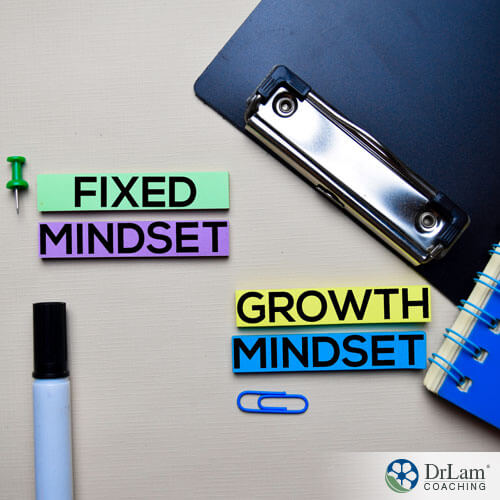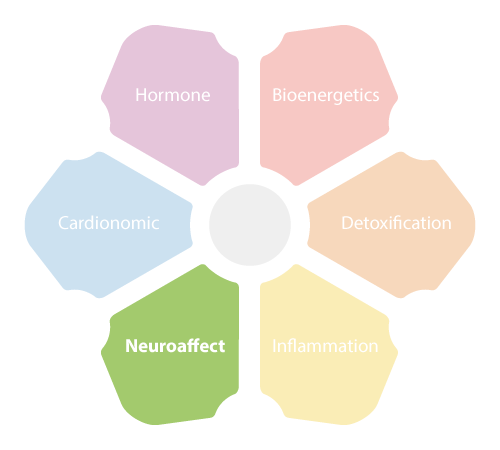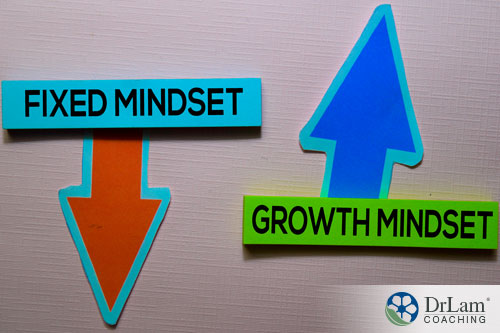 Our world is one where we are increasingly called on to deal with difficult decisions, chronic stress, and sustain our motivation over the long-term as we push towards goals that could improve our lives. Finding new ways to deal with these situations is critical if we are going to succeed in the world today, and these are also important skills to teach our children. One such skill that is coming into prominence is a growth mindset.
Our world is one where we are increasingly called on to deal with difficult decisions, chronic stress, and sustain our motivation over the long-term as we push towards goals that could improve our lives. Finding new ways to deal with these situations is critical if we are going to succeed in the world today, and these are also important skills to teach our children. One such skill that is coming into prominence is a growth mindset.
The issue of a growth mindset is a complex one. Not only is there no clear distinction between the growth and fixed mindsets, but it can be confusing because you can have a growth mindset in some areas and a fixed mindset in others. However, research shows that having a growth mindset can both improve your ability to keep working at difficult projects despite failure and cope better with stress.
Individuals with a growth mindset believe in continuous improvement. They constantly try to develop new skills or improve the ones they already have. They are prepared to work hard to achieve their goals and regularly ask for input from others as they try to learn from constructive feedback. In other words, they are ready to learn throughout life, are open to suggestions, and are keen to experiment with new ways of doing things.
Having a growth mindset can be a powerful tool not just for achieving your work goals, but in almost all spheres of your life, particularly when you need to motivate yourself or others.
For example, if you ever tried to change your lifestyle and adopt healthy eating habits, get yourself to exercise regularly, or quit smoking, you know this is not something that can be achieved overnight, especially if your current lifestyle habits are drastically different from those you'd like to have. Healthy habits are not hard to develop but are difficult to stick to - unless you're willing to change your mindset.
Those who are self-disciplined or don't have addictive natures may find adopting a healthier lifestyle relatively easy. Others may need a strong motivation to keep them going through periods of cravings, rebound weight gain, or withdrawal symptoms.
What people often forget is that, just as it took years to develop certain bad habits, you have to be prepared to work consistently on new ones. If you're struggling, you have to find a way to motivate yourself, and this is where a positive mindset can help.
Individuals with a growth mindset find it easy to keep themselves motivated mainly because they believe they can achieve anything they want if they work hard enough for it. They believe they can improve their academic performance, stick to a healthy diet, lose weight, or heal a health condition, for example, if they keep working at it.
 Motivation is very important not only because it gets things started but because it provides that extra "push” you often need when the going gets tough. If you feel exhausted, disappointed, or have sustained a major setback, you need to build lasting motivation that will help you fight procrastination and overcome fears or self-doubt.
Motivation is very important not only because it gets things started but because it provides that extra "push” you often need when the going gets tough. If you feel exhausted, disappointed, or have sustained a major setback, you need to build lasting motivation that will help you fight procrastination and overcome fears or self-doubt.
Important decisions you make in life often depend on how smoothly you can get yourself through times of crisis. So how do you motivate yourself to believe in yourself, to have more enthusiasm, and to have the energy to deal with repeated setbacks? A growth mindset is one way to attain this state of sustainable motivation.
In order to maintain a positive mindset, you must learn to recognize and eliminate the barriers to your goals.
These are the key growth mindset saboteurs:
There are times when it's impossible to stay focused on your goals unless you are motivated and have developed the strength to ignore the attitudes of people and situations that sap your motivation. For example, if you continuously receive criticism, if you work in an aggressively competitive environment where you are often made to feel you're not doing enough, if you grew up with over-ambitious parents, if your partner often makes fun of you, if you have to deal with unsupportive colleagues or friends, or if you constantly undermine yourself with negative self-talk.
 Although occasional and short-term stress is a normal part of life and can even be a powerful motivation tool if it makes you more alert or more productive, chronic and unmanaged stress can be devastating. It not only affects your thinking and emotions, but it can also change your behavior and lead to a number of physical and mental health problems.
Although occasional and short-term stress is a normal part of life and can even be a powerful motivation tool if it makes you more alert or more productive, chronic and unmanaged stress can be devastating. It not only affects your thinking and emotions, but it can also change your behavior and lead to a number of physical and mental health problems.
We are drowning in stress but as stress has come to be seen as normal in the fast-changing and increasingly competitive world of ours, we are often unaware of how tense we are. Unfortunately, it's usually only when we experience a stress-related health problem - like burn-out, a nervous breakdown, or a stroke - that we realize just how stressful our life actually is.
Fortunately, your adrenal glands help you deal with stress; however, if the stress in your life never stops, your adrenals will eventually become overburdened with the continuous production of cortisol and stop working.
Humans evolved well-adapted to deal with short-term stress, but not with stress as a way of life. When that happens, your adrenal glands become depleted, and your key organs, your behavior, and your emotions all pay the price.
Adrenal Fatigue Syndrome (AFS) is a stress-related disorder that manifests as chronic exhaustion and a weakened immune system. Although conventional medicine still does not recognize it as a medical condition, the reason AFS is affecting more and more people is that the increased stress of modern living is making it very difficult for our adrenals to cope. We are exposed to one form of stress or another almost all day long, and as a result often feel drained, irritable, exhausted, or depressed.
Although modern medicine has a number of very powerful medications which offer almost instant stress relief, they usually come with negative side effects. The worst thing is that if you get used to this way of handling the problem, it will eventually reduce your ability to cope with stressful situations on your own, which is how many people become addicted.
 On the other hand, the NeuroEndoMetabolic (NEM) Stress Response model offers an alternative solution to AFS. The part particularly pertinent to motivation is the Neuroaffect circuit of the NEM, which consists of the autonomic nervous system, the brain, and the microbiome. This approach looks at the body's entire ecosystem to find the best solution to stress through exercise, a healthy diet, and a positive mindset.
On the other hand, the NeuroEndoMetabolic (NEM) Stress Response model offers an alternative solution to AFS. The part particularly pertinent to motivation is the Neuroaffect circuit of the NEM, which consists of the autonomic nervous system, the brain, and the microbiome. This approach looks at the body's entire ecosystem to find the best solution to stress through exercise, a healthy diet, and a positive mindset.
Years of research show that individuals with a growth mindset are affected by stress much less than fixed-mindset people are. This is probably because people who develop and nurture a growth mindset are usually confident enough not to experience challenges, negative feedback, and setbacks as a potential “threat.” They avoid situations where their stress response system has to get involved and produce cortisol to prepare them for the fight-flight-freeze scenario. As a result, they are generally more composed and less stressed in conflict situations or when facing adversity. On the other hand, those with a fixed mindset feel more threatened by adversity and so experience problems as more stressful than their counterparts.
Much of the early research on having a growth mindset has been done in schools. They have found that focusing on effort and the process of learning that leads to achieving good results, over the results themselves, tends to increase motivation and a “can-do” attitude. By becoming more aware of what reduces your motivation, along with improving your self-talk and being aware of what qualities you praise and value in yourself, you can begin to build the resilience that a growth mindset provides. Make a point of intentionally noticing and praising yourself for your effort and for learning from your mistakes when you work on projects that are difficult for you.
 It’s also worth noting that most people do not have a growth mindset in all areas of life. As you focus on developing more growth-oriented thought patterns, just focus on one area at a time, such as praising your effort and learning process related to developing a healthy diet, exercise plan, or reaching new career goals, rather than trying to do it all at once.
It’s also worth noting that most people do not have a growth mindset in all areas of life. As you focus on developing more growth-oriented thought patterns, just focus on one area at a time, such as praising your effort and learning process related to developing a healthy diet, exercise plan, or reaching new career goals, rather than trying to do it all at once.
The benefits of a growth mindset are many, not least of all its ability to help you pass through stressful situations more easily. As you try to sustain motivation towards your goals, it can be a powerful ally.
© Copyright 2021 Michael Lam, M.D. All Rights Reserved.
You often have to make important decisions in life, and sometimes you have to make decisions for others. Those with a growth mindset constantly improve themselves and this includes their decision.making skills. They are open to input from others and happy to learn from past mistakes.
